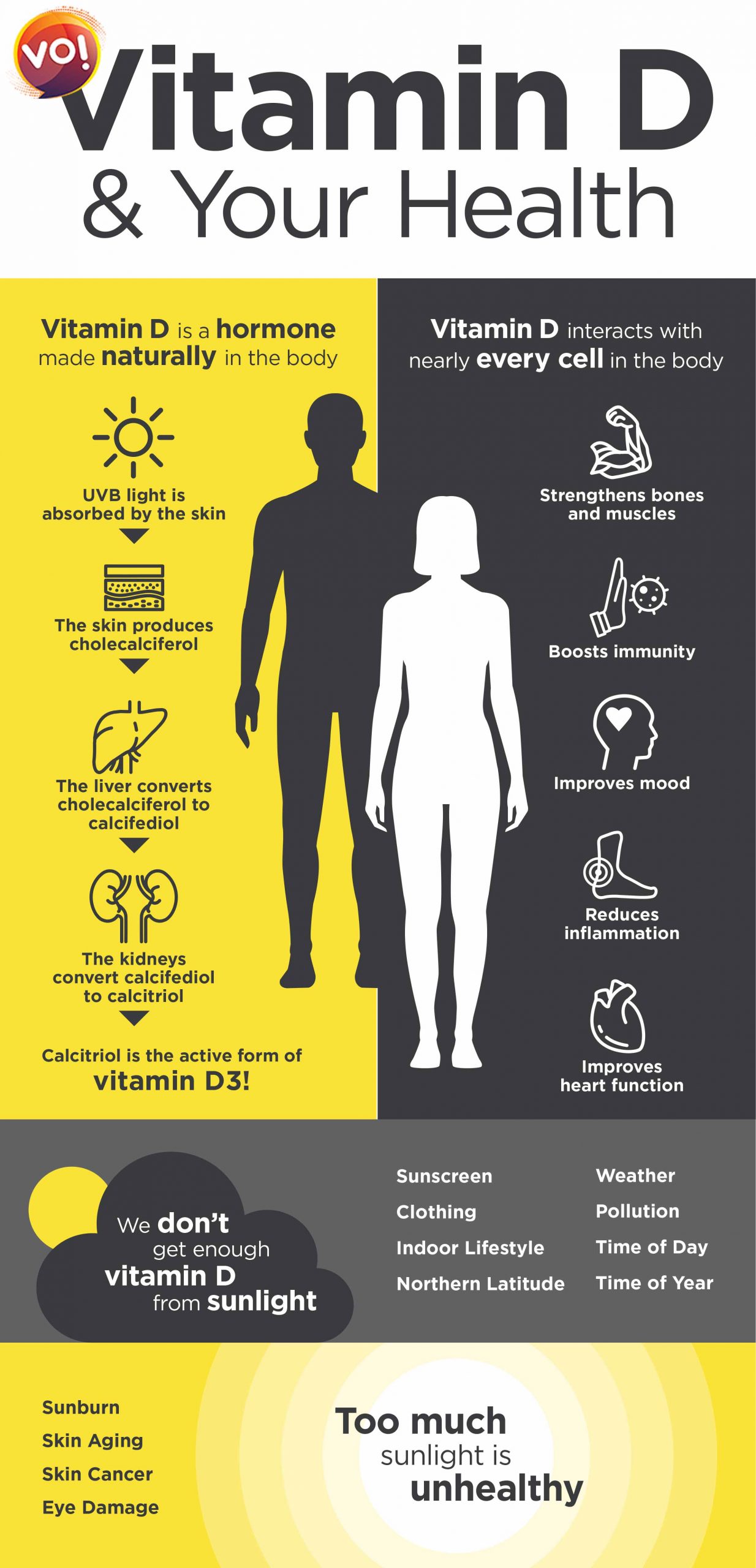Maintaining proper levels of vitamin D is crucial to overall health and wellness. Deficiency of the sunshine vitamin is correlated with more than 53 disease states, including breast cancer, multiple sclerosis, osteoporosis, and rheumatoid arthritis, as well as a host of mental health conditions.
Vitamin D is often referred to as the “sunshine vitamin” because vitamin D3 production in the skin is activated by the sun’s ultraviolet B (UVB) rays. Despite being called a vitamin, it is actually a hormone produced within the body.
Vitamin D is naturally produced when UVB light is absorbed by the skin, converting a specialized cholesterol to pre-vitamin D3. Pre-vitamin D3 then converts to vitamin D3 in the skin and transfers to the bloodstream over several days. After reaching the liver, vitamin D requires two metabolic conversions to become calcitriol – the active form of vitamin D. Calcitriol binds to vitamin D receptors in nearly every cell throughout the body.
Though it sounds complicated, this process is regulated naturally by the body. The bioavailability of vitamin D is managed by several internal control mechanisms to ensure your body gets only what it needs. When vitamin D levels are maintained, this hormone boosts your immune system — readying you for any physical or mental challenge that comes your way.

Overcoming Obstacles
Studies have shown that vitamin D insufficiency is widespread, with approximately 77% of the global population experiencing low levels of vitamin D [1,2]. Awareness of the importance of vitamin D’s role in overall health is crucial to living your healthiest life.
While spending time in the sun sounds easy, the shift from an agrarian society into today’s information age has directly affected our lifestyle — which now includes sitting behind a computer screen for hours each day. Our indoor society is exposed to the sun much less than prior generations.
When we do make time to enjoy the beauty of the outdoors, too often we cover our arms, legs and face with lightweight clothing and wide-brimmed hats. This is in large part thanks to increased awareness of sunburn and skin cancer risks, as well as to prevent premature skin aging. Such awareness has led to increased protection from the sun’s harmful UVA rays. However, these measures also block beneficial UVB rays, which has resulted in epidemic levels of vitamin D deficiency.
Science Says, More Sun Please
Not yet convinced of the health benefits gained from exposure to sunlight? Just look to the science. Daily exposure to sunlight has been shown to reduce the incidence of multiple sclerosis, type 1 diabetes, hypertension, and even the occurrence and mortality from multiple forms of cancer. A 20-year study following approximately 30,000 subjects found that those who avoided exposure to the sun were twice as likely to die from all causes. This research corroborates several prior studies that stated diminished exposure to the sun is a risk factor for all-cause mortality.
Also Read: Key To Happiness? It’s All In Your Food!













